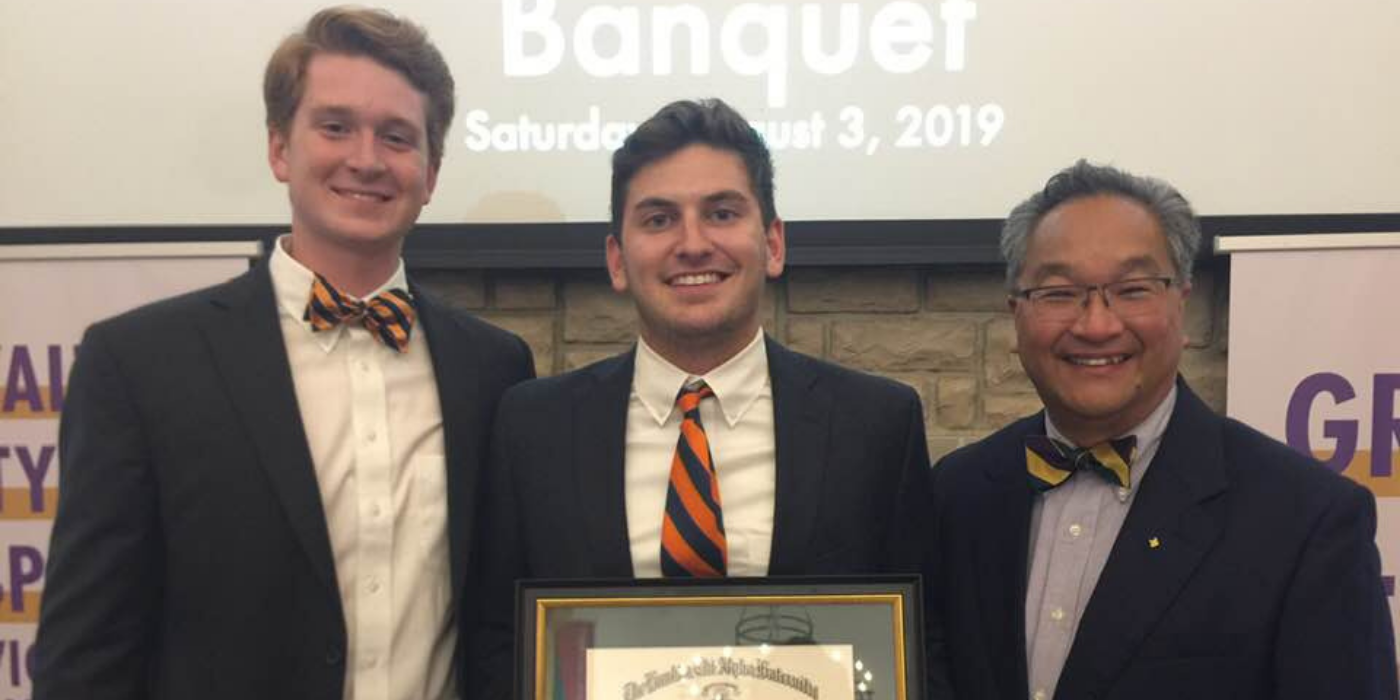As a practicing physician at Auburn University, Dr. Fred Kam witnesses the mental health struggles college students face every day firsthand. Since the pandemic, Kam has seen more and more students approach him with physical complaints for which there is no biochemical reason.
“We know that mental health affects your physical health,” Kam said. “It also affects relationships with people and interactions with others, and it definitely impacts the quality and quantity of what you do. When you look at the holistic needs of a person, mental health is as important as physical health.”
An alumnus of Lambda Chi Alpha, Kam is proud to give back by serving on the organization’s board of directors (Grand High Zeta). Working on the frontlines of student health allows him to bring a unique perspective to the board, especially when it comes to mental health.
“I think that one of the great values I add to the Grand High Zeta is that I am on the daily frontlines of seeing and working with college students and their families,” Kam said. From his work on campus, Kam has recognized a negative trend affecting college men in particular: the perception of mental health conversations as taboo or unneeded.
“Guys are brought up to not accept vulnerabilities,” he said. “You have to be tough, you can’t cry, you have to suck it up and brush it off. But we have to remember our humanity.
“For many of us as guys, we create relationships through team approaches, and that’s why we play team sports. It takes a team to win a soccer game, and likewise it takes a team to win in life. No one gets to where we are by ourselves.”
Kam took his own advice during the pandemic, coping with stress and disturbance by creating his own “team”. He made a commitment to himself to reach out to five people every month with whom he hadn’t spoken to in a year. Five people turned into seven, which turned into ten, and ultimately, he was able to rekindle relationships that helped him get through the pandemic and bolster his mental health.
As an organization, Lambda Chi fits exactly into Kam’s team analogy. A social circle of brotherhood provides a perfect environment for support and conversations about mental health.
“I encourage people to have a closed pod social group that cooks together, eats together, talks together, and watches uplifting or educational things,” Kam said. “You have to realize that you’re not alone, and that the people around you are in various stages of a process. If we understand that communication is key, we can engage a team to help us get there.”
But Kam warns that although one should always be there to help their support system, sometimes professional help should be involved. He stresses the importance of knowing limitations, and only giving the help one feels one can. When it gets to the point where someone needs an intervention, Kam advises taking the burden of research off them by figuring out how they can get professional help.
From his medical expertise and campus observations, Kam has come up with a few key takeaways to improving mental health.
“Your mental health and fitness is as important as physical health,” he said. “Not everyone needs a trained professional, but all of us need people who care. This is not something you have to go through alone.
“A team works, and a team can be made up of so many different entities. And just like you do with physical exercise, you will develop resilience and life experiences to draw from, and you can become the person you want to become. You’ll just have to be willing to work at it and allow people to help get you there.”
In addition to his work with Lambda Chi, Kam holds professorships and works at a clinic at Auburn University and was chosen by his peers as one of the best doctors in America. Kam also received the Eric Rice award for outstanding teaching. Learn more about mental health by listening to the upcoming of ChopTalk episode, coming soon.


